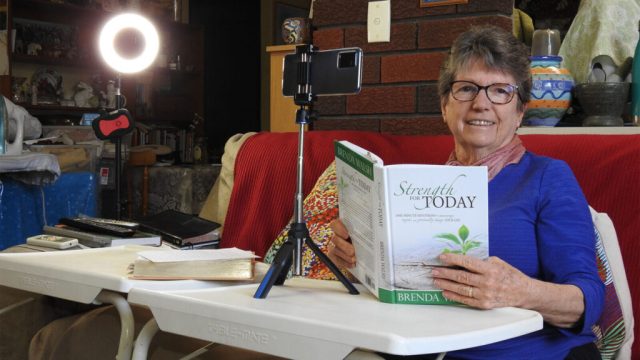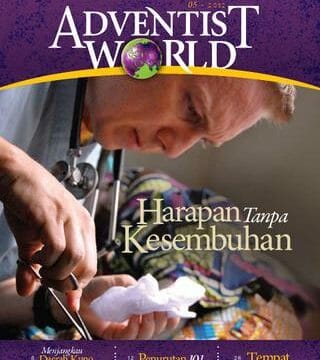Character is forged over time, especially through fiery trials.

Difficulties often frustrate us. They can make us angry with others, and even angry with God. We often feel victimized. Self-doubt and despair come creeping in. We rarely do well in difficulty. This is because we sometimes lack inner resources and a strong resolve. Adversity, not prosperity, reveals the core of a person. Suffering may seem senseless, but the pain God allows in our life is purposeful.
God’s Purpose Behind Our Trials
James says, “Consider it pure joy, my brothers and sisters, whenever you face trials of many kinds, because you know that the testing of your faith produces perseverance. Let perseverance finish its work so that you may be mature and complete, not lacking anything” (James 1:2-4).1 Either James failed to understand reality or he saw trials as opportunities for spiritual maturity. Lavish joy in the experience of trials sounds strange, maybe even otherworldly.
“Consider” refers to deliberate and careful judgment stemming from external proof, not subjective judgment based on feelings. Although powerful emotions are certain when we face severe trials, we must trust in God’s grace and guidance, and view the trials from a biblical perspective.
James says the purposes of trials are for the “testing of our faith.” The word “testing” here doesn’t mean that God has us go through trials to examine our faith and see if it is of passing grade. Instead, it refers to the testing of metals to remove impurities. Thus, the metal becomes stronger and has more integrity. When we go through trials we exercise our trust in God, and in that way find Him trustworthy.
Biblical joy in times of trials is more than natural optimism or positive thinking. It’s the joy of hope in God and His promises. Learning to overcome suffering is a major part of character development. Trials come in our lives in various ways, but no matter the trials, we can experience victory through faith in Christ. This passage teaches us that trials should be viewed not as foes but as friends.
God may choose what we go through, but we choose how we go through it. As we journey through life we can expect trials to test our faith, but they are passing experiences that help to purify us and make us who we are. “These have come so that the proven genuineness of your faith—of greater worth than gold, which perishes even though refined by fire—may result in praise, glory and honor when Jesus Christ is revealed” (1 Peter 1:7).
“Trials are essential in order that we may be brought close to our heavenly Father, in submission to His will, that we may offer unto the Lord an offering in righteousness,” writes Ellen White. “The Lord brings His children over the same ground again and again, increasing the pressure until perfect humility fills the mind, and the character is transformed; then they are victorious over self, and in harmony with Christ and the Spirit of heaven. The purification of God’s people cannot be accomplished without suffering. . . . He passes us from one fire to another, testing our true worth.”2
In both the Old and New Testaments we find many references to refining gold and silver, as a parallel of God’s refining through painful trials. This memorable illustration helps us understand the purpose beyond our pain—to conform us to the character of Christ. Clearly, we don’t develop Christlike character all at once. Character is forged over time, especially through fiery trials.
Facing the Refiner’s Fire
Here are six helpful spiritual concepts illustrated by the refining process.
Stage 1: The Breaking: In biblical times a refiner began by breaking up rough ore-hardened rock encased with such common minerals as tin, copper, and zinc. That rock also had the promise of valuable metals hidden within. Breaking the rock is necessary to expose valuable metals to heat. The Lord communicates His perfect plan to us; we are rough rock in need of refining fire.
Stage 2: The Crucible: The refiner puts broken, crushed ore into a fireproof melting pot able to withstand extreme heat, placed into the furnace so the quality can’t be tainted by other metals. Just as the furnace purifies silver in the crucible, our Refiner uses heat to purify our hearts and cleanse our character.
Stage 3: The Dross: As the ore melts in the crucible under the watchful eye of the refiner, a layer of impurities called “dross” eventually forms on the surface. For us, dross represents anything that keeps us from being all that God wants us to be.
Stage 4: The Heat: The refiner painstakingly skims off impurities as the heat is turned up. The blistering furnace causes impurities to rise to the surface. Only certain impurities are released at certain temperatures.
Stage 5: The Purification: Each time the refiner removes the dross with great skill and patience, gleaming gold and shimmering silver are left behind, more pure and precious than before. The refiner assesses progress by looking for their reflection on the surface. The more dross removed, the less distorted the reflection. God, our Refiner, sits over the refining process to purify us: “But he knows the way that I take; when he has tested me, I will come forth as gold” (Job 23:10).
Stage 6: The Reflection: The process is complete when a clear reflection can be seen. Finally, the silver and gold gain their highest degree of purity, which describes our Refiner’s loving purposes for allowing us to be in the “furnace of suffering.” As we trust Him to use trials to clean our characters and purify our hearts, we will begin to see the “silver lining.” God says, “See, I have refined you, though not as silver; I have tested you in the furnace of affliction” (Isa. 48:10).
The heat isn’t intended to destroy us, only to conform us into the character of Christ. We can’t know the depth of our character until we see how we react under pressure. Tough times can teach us perseverance. When we take time to be still and face the difficulties before us, we discover they were not as they first seemed—a hindrance—but were in fact a way to new experiences.
1 Bible texts in this article are from the New International Version.
2 Ellen G. White, My Life Today (Washington, D.C.: Review and Herald Pub. Assn., 1952), p. 92.
Julie Guirgis is a freelance writer living in Sydney, Australia.








